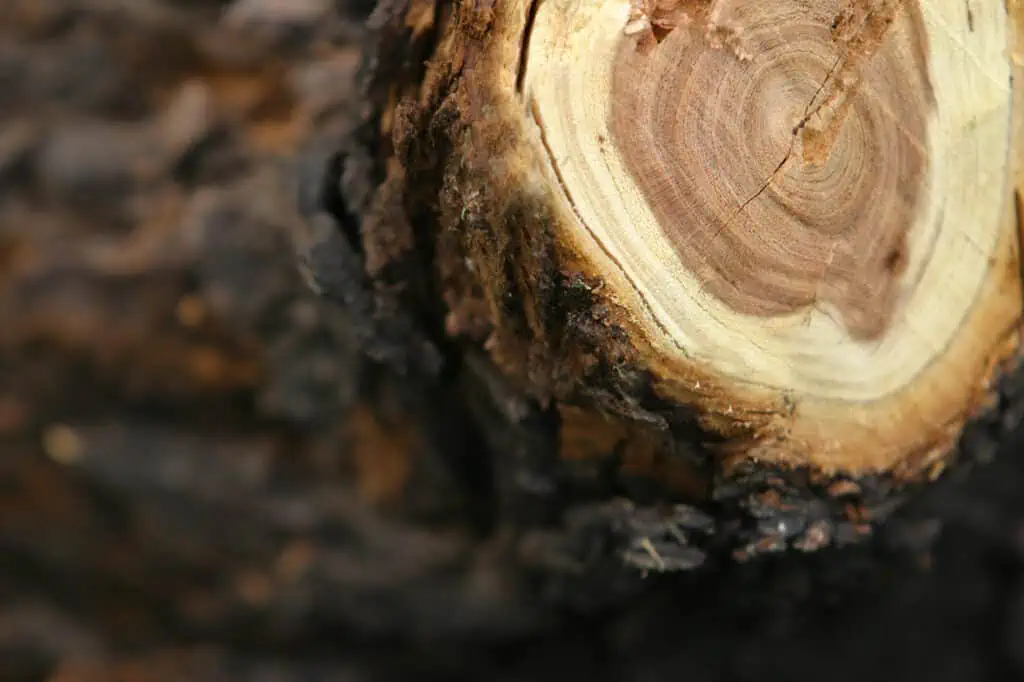For many of us who started our aromatherapy journeys many years ago, we used Rosewood for its uniquely beautiful aroma, anti-bacterial/anti-viral benefits, and healthy treatments for skin and hair. Rosewood essential oil is derived from the wood of the Aniba rosaeodora tree, native to the Amazon rainforest. It has a sweet, woody, and floral aroma, making it popular in both aromatherapy and perfumery.
With its exquisite, rosy, sweet, slightly floral, woodsy aroma, Rosewood Essential Oil is also known as Bois de Rose Essential Oil, Brazilian Rosewood Oil and ‘Pau-Rosa’ Oil.
But now, Rosewood is an endangered species and the oil cannot be sold without a certificate from the Brazilian Government verifying that it comes from sustainable sources. However, the validity of these certifications is often in question, and shouldn’t be relied on. The most ethical choice is to avoid Rosewood essential oil.
Rosewood oil is derived from the Aniba rosaeodora – a tree with golden-yellow flowers from the Amazonian rainforests of Brazil and French Guiana. The oil is obtained via steam distillation of wood shavings which have a delightful, warm, slightly spicy, woody scent.
Aniba rosodora is a massive, evergreen, fragrant tree, up to 30 meters in height and 2 meters in diameter.
Rose essential oil is derived from the rose flower, while rosewood essential oil is derived from the rosewood tree. Both oils have a sweet, floral scent and are used in aromatherapy and perfumery.
Rosewood is sometimes referred to as Bois-de-rose oil, the scent is sweet, woody, fruity, floral aroma. It blends well with lavender, orange, lemon, tangerine, sandalwood, cedarwood, and geranium.
Energetically, Rosewood oil is associated with the Crown chakra – the thousand-petaled lotus symbolizing enlightenment – Rosewood is useful for those meditating on compassion, empathy and understanding.
Therapeutically, it’s known to have anti-bacterial, anti-infectious, anti-viral chemistry as well as skin healing and mood-boosting benefits. However, all of these benefits can be obtained from other oils, such as Ho wood, Hinoki, Eucalyptus, Vetiver, Lavender and so many more – so in light of its endangerment, the benefits cannot justify its use.
Structure of linalool, a substance extracted from A. Rosodora. Linalool is also found in Basil, Lavender, Rose, Neroli, Thyme and many other essential oils.
Rosewood Essential Oil Extraction
The tree is collected in the wild: fallen trees are cut into 1-meter long logs, which are taken to a riverbank and when river levels are high enough, the logs are floated downriver to a distillery. Because of the remoteness and difficulty of travel in the Amazon, distilleries are often mobile, movable by raft. When they arrive at the distillery, the logs are chipped and then steam distilled. Each tree yields about 1% oil by weight of wood. Most worldwide production comes from Brazil; since the 1960s, other areas produce only a minor, insignificant amount. Trees are taken from near the Amazon and its tributaries. (source: wikipedia)
Sustainable Alternatives
We’ve chosen to discontinue selling it and recommend other oils in its place. Ho Wood is a similarly floral wood that can substitute aromatically (with its own plethora of therapeutic benefits, including antiseptic, anti-microbial and immunity support) – plus, we now offer a 100% natural identical Rosewood oil made from other essential oils (including Ho Wood).
Excellent lymphatic tonics and rich in linalool, rosewood, Ho wood and shiu wood essential oils all have anti-infectious, antibacterial, antifungal and antiviral properties – and support the immune system. They are also immunomodulating, analgesic and antispasmodic.
We hope that rather than purchasing Rosewood essential oil, you’ll find alternatives like Ho wood or our 100% natural, nature-identical Rosewood oil made from other essential oils. We support sustainable aromatherapy, and living in harmony with the earth – not taking more than we can replenish. Utilizing endangered oils is antithetical to our guiding light of working synergistically with nature, benefitting from their healing gifts without imposing harm on the earth. Please join us in avoiding this rare oil during this precarious time for this precious tree.




